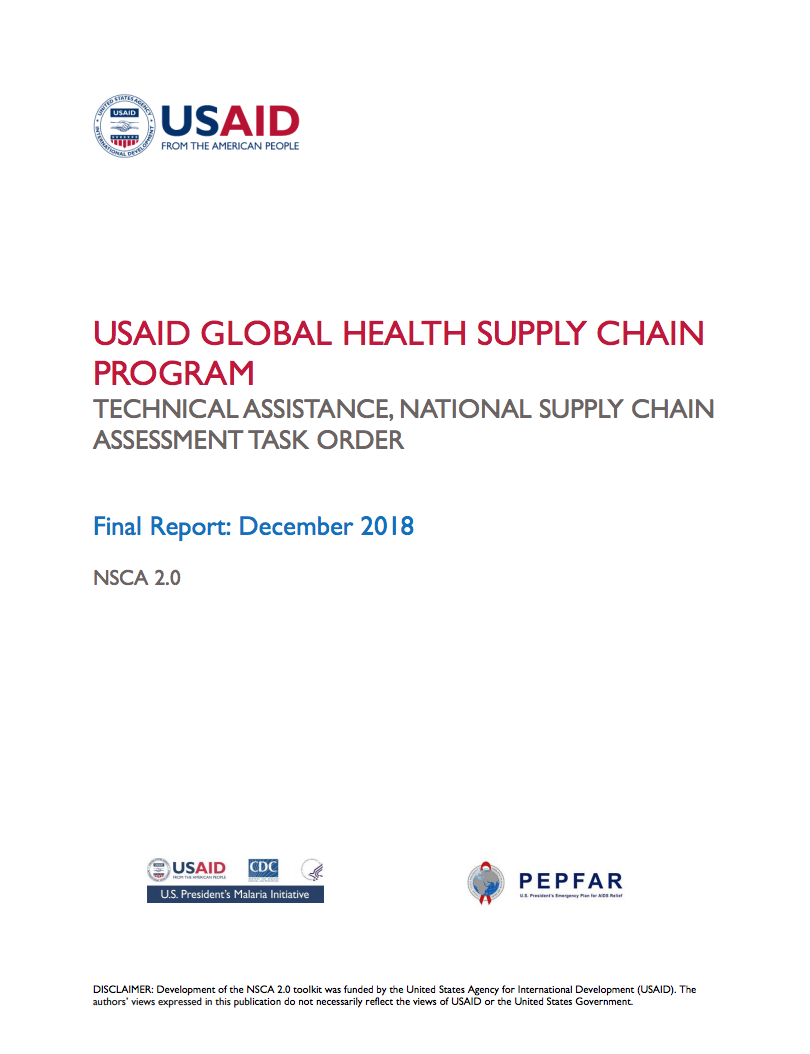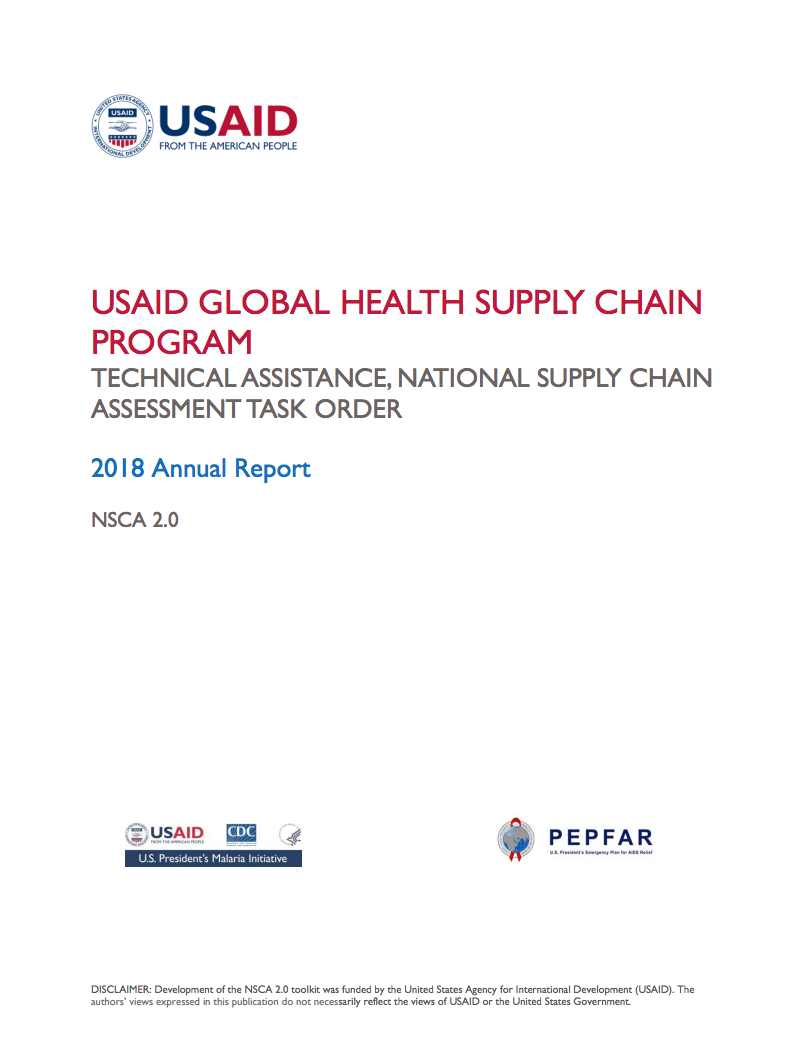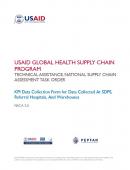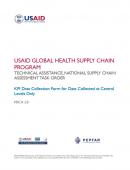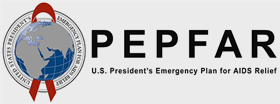The National Supply Chain Assessment Tool (NSCA) is USAID’s premier tool for assessing public health supply chain performance, capability and maturity. Initially developed in 2012 under USAID’s Supply Chain Management System (SCMS) project, the concept of the tool was grounded in the need to establish a common basis by which to assess the performance of national public health supply chains for essential health commodities. The concept included developing a methodology that delivered the ability 1) for countries to self-assess the status, progress, and future needs within the public health supply chain, 2) to compare results across countries, and 3) to inform USAID investment decisions. The version of the NSCA that resulted, now referred to as NSCA 1.0, was piloted in three countries and subsequently deployed in an additional 13 countries over a three-year period.
NSCA Task Order
In July 2016, Axios International, Inc. (Axios) was awarded a task order under USAID’s Global Health Supply Chain – Technical Assistance (GHSC-TA) multiple award Indefinite Delivery Indefinite Quantity contract to update the NSCA tool. The project had two overall objectives: 1) update, pilot test and finalize the NSCA 2.0 methodology, tools, report functionality and documentation and 2) disseminate and implement the NSCA 2.0. The project worked closely and collaboratively with a number of stakeholders to ensure an inclusive redesign process as well as broad utilization of the tool. They also piloted the new tool in Rwanda and Zambia (2017), and participated in a joint assessment with The Global Fund for AIDS, Tuberculosis and Malaria implementing the newly revised tool in Uganda (2018).
During project implementation, the NSCA was improved in a number of ways. Foremost, the NSCA 2.0 is now a publicly available, updated tool with an implementation guide. The NSCA 2.0 also features the following: introduction of close ended questions with binary response scoring for more objective and quantitative scoring of capability maturity, addition of 4 new modules to the CMM with greater focus on cross-cutting and systems components, greater user-friendliness for data collectors, automated analysis of results, and a clear sampling approach. A more detailed description of the differences between NSCA 1.0 and NSCA 2.0 can be found in the implementation guide on the NSCA 2.0 toolkit page (see link below).
The result of this centrally funded project was an updated and complete toolkit intended to guide the design, implementation, and dissemination of national supply chain assessments of public health supply chains in developing country contexts globally.
Reports and Resources
The annual report and final report for the NSCA 2.0 Task order can be found here and here, respectively.
The NSCA 2.0 Toolkit can be found here. This toolkit includes all the support resources required to successfully implement an NSCA 2.0.
